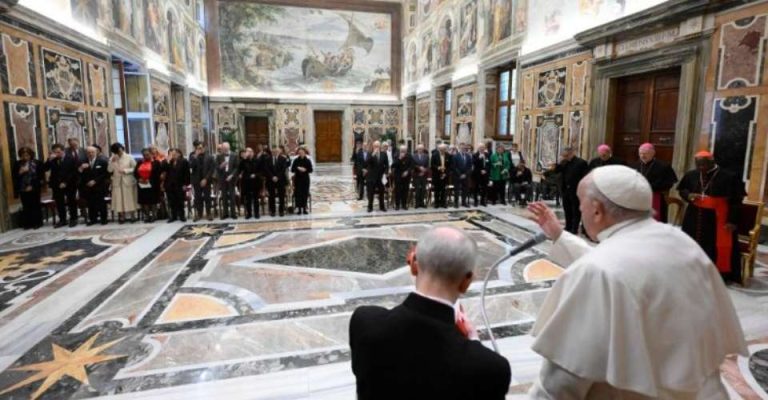Pope Francis said that today's culture of exclusion, driven by profit, competence and success, marginalizes people with disabilities and threatens their God-given dignity.
The use of utilitarian and functional criteria to determine the value of human life can lead to serious violations of the rights of the most vulnerable people and create great injustice and inequality, the pope told members of the Pontifical Academy of Social Sciences on April 11.
The academy, formed by scholars from around the world, held a three-day plenary session on disability and the human condition at the Vatican.
Meeting with them on the final day of their conference, Pope Francis highlighted a less obvious and very insidious aspect of today's culture that is eroding the value of people with disabilities in the eyes of society: the tendency that leads one to view their existence as a burden. For himself and his loved ones.
He said that the spread of this mentality turns the culture of exclusion into a culture of death.
The Pope condemned the idea that certain lives are not needed, such as aborted fetuses or elderly people who seek medically assisted suicide.
To combat the culture of exclusion, Pope Francis proposed promoting a culture of inclusion that removes barriers that prevent all people from accessing fundamental rights and freedoms.
While he said such active efforts appear mostly in economically developed countries, the Pope encouraged the international community to support poor countries' efforts to increase the inclusion of people with disabilities in all areas of society, including education, culture, work and sports.
However, Pope Francis also noted that true inclusion occurs when people with disabilities are not passive recipients, but rather participate in social life as champions of change.
The Pope stressed the injustice done to people and their families who are pushed to the margins of society due to disability, especially in poor countries, but noted that even in wealthier contexts a person's disability is considered a “personal tragedy” and is not taken into account by the international community. The whole community.
He said that Jesus did not ignore or reject people with disabilities, but rather went out to meet them and changed the meaning of their experience.
The Pope said that for him every human situation, even those characterized by great limitations, is an invitation to weave a unique relationship with God that makes people flourish again.

